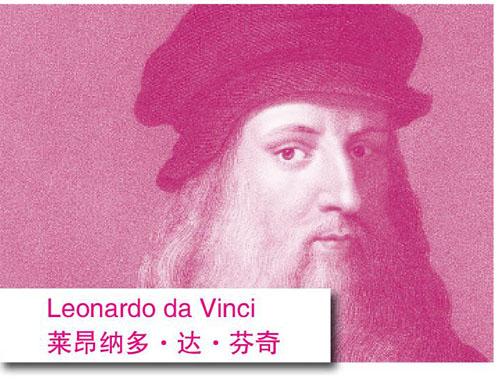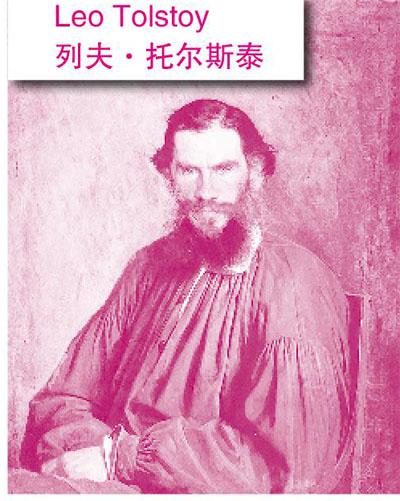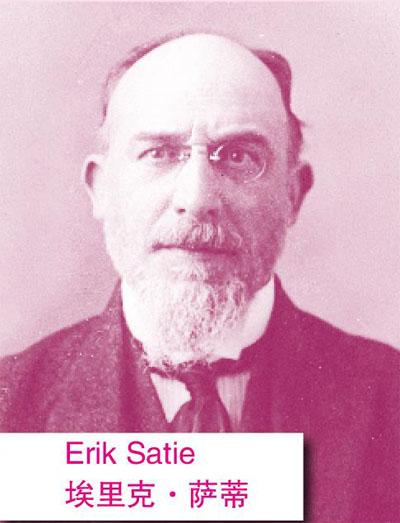世界名人的那些怪癖



Leonardo da Vinci
萊昂纳多·达·芬奇
Da Vinci was a painter, an engineer, a writer, a sculptor, an inventor, an architect, a pioneer in exploring human anatomy, an avid animal lover and possibly one of the most famous vegetarians who ever lived. It seems that theres nothing that this man did not do. Yet there was, and it was sleeping. He wasnt a fan of it and after conducting careful research and building up his knowledge, he started following the polyphasic sleep cycle. To put it in other words, Da Vincis sleep would consist of several short naps every 24 hours. Being the Renaissance man is not so easy.
达芬奇是一名画家、工程师、作家、雕塑家、发明家、建筑师、探索人类解剖学的先驱、狂热的动物爱好者,可能还是有史以来最有名的素食者之一。似乎没有什么事情是达芬奇没做过的。但是有一件事是达芬奇不爱做的,那就是睡觉。经过仔细的研究和积累相关的知识之后,他开始采用多阶段睡眠法。换言之,达芬奇在一天的时间内小睡多次,每次只睡一点时间。能当文艺复兴时期的代表人物可不是那么容易的事。
Leo Tolstoy
列夫·托尔斯泰
The giant of the Russian literature, Leo Tolstoy not only wrote historically accurate books, but he himself became of historical importance while still being alive. Despite coming from the highest layers of society, Tolstoy eventually started questioning the morale of society that he lived in and started following his own path. He became a vegetarian, started following a vigorous daily routine and denounced the looks of a rich man. He started wearing peasant clothes and shoes, which, despite not being too skilled, were made by himself.
俄国文学巨匠列夫·托尔斯泰不仅写出了真实地反映历史的书,他自己在世时也成了重要的历史人物。尽管托尔斯泰出身上层社会,但他后来开始质疑他所生活的社会的风气,并开始走自己的道路。他成了一名素食者,开始遵守严格的日常作息,并抛弃富人派头的打扮。他开始穿农民的衣服和鞋子,这些衣服和鞋子都是他自己做的,尽管做得不太好。
Erik Satie
埃里克·萨蒂
The prominent French composer Erik Satie was incomprehensibly bizarre. His eating habits were something else. He only ate food that was white, such as eggs, sugar, grated bones, salt, coconuts, rice and similar. Each day he rose at 7:18 am and would have lunch strictly at 12:11. Then he would have dinner at 7:16 pm and he would go to bed at 10:37 pm. Also, he was a hoarder but a very specific one—he loved umbrellas and had over 100 of them.
法国著名的作曲家埃里克·萨蒂是个让人匪夷所思的人。他的饮食习惯完全和常人不同。他只吃白色的食物,比如鸡蛋、白糖、磨碎的骨头、盐、椰子和大米之类的食物。他每天早上7点18分起床,中午12点11分准时吃午饭,晚上7点16分吃晚饭,10点37分睡觉。另外,他还是个囤积狂,但他只囤积一件物品——雨伞,他拥有100多把雨伞。
Michelangelo Buonarroti
米开朗琪罗·博那罗蒂
The Sistine Chapel in Vatican City might be celestial, but its creator, Michelangelo, one of the most important names in Western arts history, was far from that. And for a simple reason, which is hygiene. Michelangelo slept with his clothes and boots on, without removing them for days. He avoided showering and even considered it a health hazard. Well, he might have had a point, because he lived until he was 89 years old.
梵蒂冈的西斯廷教堂也许美得出尘脱俗,但它的创造者——西方美术史上最重要的人物之一米开朗琪罗却远非如此。原因很简单,就是卫生问题。米开朗琪罗穿着衣服和靴子睡觉,而且好多天都不脱。他很少洗澡,甚至认为洗澡会危害身体健康。不过,他的观点也许有点道理,因为他活到了89岁。
Honoré de Balzac
奥诺雷·德·巴尔扎克
“Were it not for coffee one could not write, which is to say one could not live” is what Balzac, the renowned French novelist, playwright and the author of The Human Comedy once said. And he really meant it, because there barely was a minute when he was not sipping this elixir of life. Its estimated that Balzac drank 50 coffee cups a day. You may wonder, how does one sleep, when youre permanently on a caffeine rush? But thats how Balzac liked it, since he woke up daily at 1 am so he could jump straight into writing.
“没有咖啡就无法写作,也就无法生活”,这是法国著名小说家、剧作家、《人间喜剧》的作者巴尔扎克说过的话。他真的是这么认为的,因为他每时每刻都在喝咖啡。据估计,巴尔扎克每天要喝掉50杯咖啡。你可能会好奇,一个人不停地喝咖啡,他还睡得着觉吗?但这正是巴尔扎克想要的,因为他每天凌晨1点醒来,喝咖啡能使他立刻投入到写作中。
Virginia Woolf and Friedrich Nietzsche
弗吉尼亚·伍尔芙和弗里德里希·尼采
Even though these two figures dont seem to have many things in common, the British modernist Virginia Woolf, together with the subversive German philosopher Friedrich Nietzsche could see themselves working in a modern office as long as they would be provided with a standing desk. They both wrote while standing up, considering it to be the only proper way to achieve something of meaning.
尽管这两个人似乎没有太多共同点,但英国现代主义作家弗吉尼亚·伍尔芙和德国颠覆性哲学家弗里德里希·尼采都适合有站立式办公桌的现代办公室。两人都是站着写作,他们认为只有这样才能写出有意义的东西。
Ludwig van Beethoven
路德维希·凡·贝多芬
Beethoven did write the glorious “Symphony No. 9”, which is now the anthem of European Union, while being already deaf, but, of course, thats just the tip of the iceberg of his input into musical history. Yet stellar results require astronomic discipline. Each morning Beethoven counted by hand 60 coffee beans from which he would make his perfect cup of coffee. Also, in order to restart his creative muscles after writing too much music, he would pour cold water on his head.
贝多芬确实是在耳聋的状况下写出辉煌的《第九交响曲》的,这首曲子现已成为欧盟盟歌。当然,这只是贝多芬的音乐轶事的冰山一角。诚然,只有极端的自律才能达到这样非凡的成就。每天早上,贝多芬都要用手数出60粒咖啡豆来泡出完美的咖啡。此外,为了激发因写作太多乐章而疲软的创作力,他会往自己头上浇冷水。
Andy Warhol
安迪·沃霍尔
Andy Warhol, the face of pop art, is easy to distinguish from a crowd. Because he indeed was a dandy and took great care of his looks, and most importantly, his iconic hairdo, which was, actually… a wig. Warhol had the unusual habit of collecting wigs. Eventually, he hoarded a collection of 40 wigs.
人們很容易就能在人群中认出波普艺术的代表人物安迪·沃霍尔,因为他是个很爱打扮的人,非常注重自己的外表。他最看重的就是他标志性的发型。实际上,那是一顶假发。沃霍尔有收集假发的特殊癖好。他总共囤积了40顶假发。
Glenn Gould
格伦·古尔德
A big name in the world of classical music, the Canadian pianist Glenn Gould was famous not only for his virtuosic skills and unique playing style. He also was a very odd character with many the eccentricities of a hyper hypochondriac. He always wore an overcoat and gloves in all temperatures because of his fears of catching germs and getting sick. And when performance time arrived, he would always bring his own chair with him, no matter where the concert took place. It always had to be his own, magical chair.
作为古典音乐界的大人物,加拿大钢琴家格伦·古尔德的名气不仅源自他杰出的演奏技巧和独特的演奏风格,他还是一个超级古怪的疑心病患者。無论是什么天气,他总是穿着大衣,戴着手套,因为他害怕感染细菌而导致生病。到了演奏的时候,无论音乐会在哪里举行,他总会带上自己的椅子。他一定要坐在自己那把神奇的椅子上演奏。
Word Study
avid /'?v?d/ adj. 热衷的;酷爱的
accurate /'?kj?r?t/ adj. 精确的;准确的
routine /ru?'ti?n/ n. 常规;正常顺序
The players had to change their daily routine and lifestyle.
bizarre /b?'zɑ?(r)/ adj. 极其怪诞的;异乎寻常的
hygiene /'ha?d?i?n/ n. 卫生
hazard /'h?z?d/ n. 危险;危害
Everybody is aware of the hazards of smoking.
distinguish /d?'st??ɡw??/ v. 使有别于
What was it that distinguished her from her classmates?

